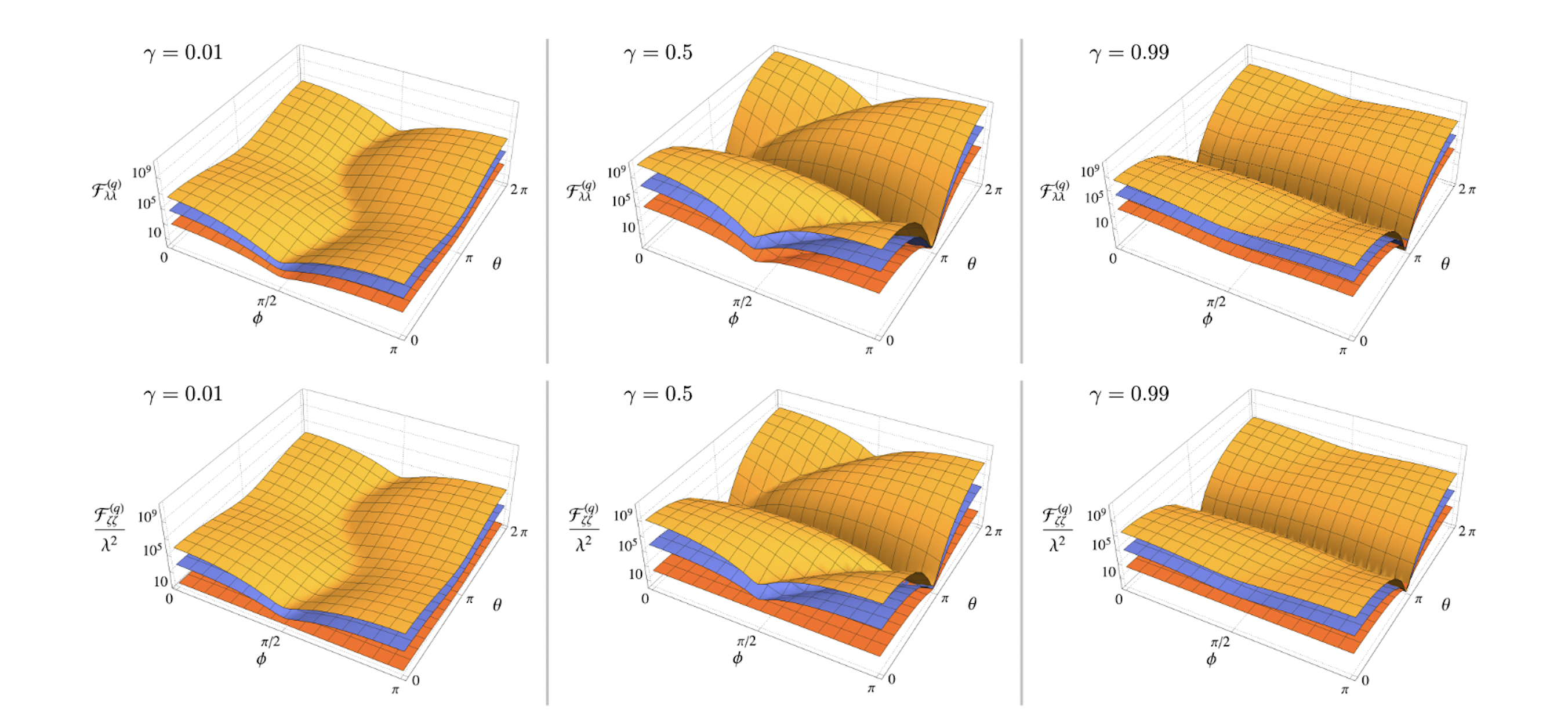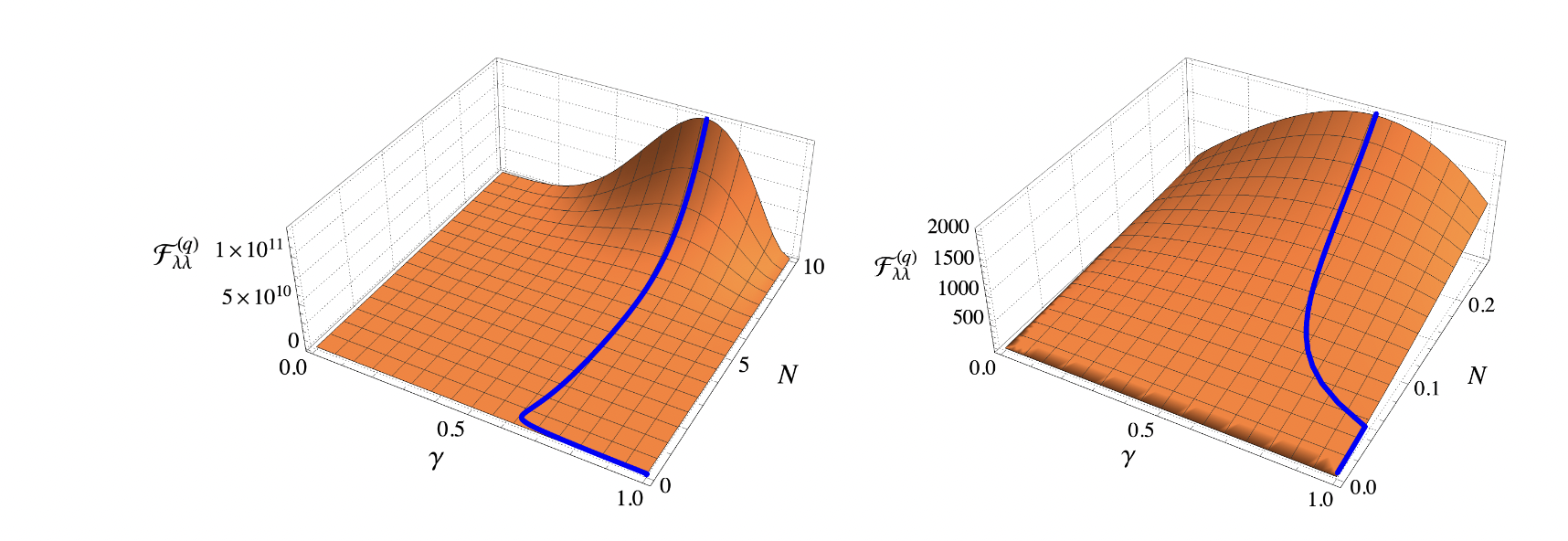Dr. Berihu Teklu Gebrehiwot graduated from the University of Milan, Italy, with a Ph.D. in Theoretical Quantum Information. He was a postdoctoral fellow at the University of Milan, at University of Blaise Pascal in France and at the Center for Cyber-Physical Systems (C2PS), Khalifa University in Abu Dhabi, before joining the Department of Mathematics as Assistant Professor.
He is a Mathematical Physicist, and his expertise includes quantum information, quantum metrology and sensing and quantum computation. His main contributions are in the fields of quantum estimation of states and operations, generation and application of entanglement, quantum information, and communication.
Selected Publications
1. Berihu Teklu, Matteo Bina and Matteo G. A. Paris
Noisy propagation of Gaussian states in optical media with finite bandwidth
Sci Rep 12, 11646 (2022).
2. B. Teklu,
Continuous variable entanglement dynamics in Lorentzian environment
Physics Letters A, 432, 128022 (2022).
3. A. Candeloro, S. Razavian, M. Piccolini, B. Teklu, S. Olivares, M. G. A. ParisFaisal
Quantum probes for the characterization of nonlinear media,
Entropy 23 (10), 1353 (2021).
4. Simon Phoenix, Faisal Khan, Berihu Teklu
Preferences in quantum games,
Physics Letters A, 384, 126299 (2020).
5. Hamza Adnane, Berihu Teklu, and Matteo G. A. Paris
Quantum phase communication channels assisted by non-deterministic noiseless amplifiers
J. Opt. Soc. Am. B 36, 2938-2945 (2019).
6. Berihu Teklu, Faisal Shah Khan, and Tim Byrnes
Cavity-induced mirror-mirror entanglement in single-atom Raman laser
Phys. Rev. A 97, 023829 (2018).
7. D. D. Solnyshkov, O. Bleu, B. Teklu, and G. Malpuech
Chirality of Topological Gap Solitons in Bosonic Dimer Chains
Phys. Rev. Lett. 118, 023901 (2017).
8. D. D. Solnyshkov, A. V. Nalitov, Berihu Teklu, L. Franck and G. Malpuech
Spin-dependent Klein tunneling in polariton graphene with photonic spin-orbit interaction
Phys. Rev. B 93, 085404 (2016).
9. Jacopo Trapani, Berihu Teklu, Stefano Olivares and Matteo G. A. Paris
Quantum phase communication channels in the presence of static and dynamical phase diffusion
Phys. Rev. A 92, 012317 (2015).
10. Berihu Teklu, Alessandro Ferraro, Mauro Paternostro and Matteo G. A. Paris
Nonlinearity and nonclassicality in a nanomechanical resonator
EPJ Quantum Technology 2,16 (2015).

Quantum metrology of sloppy statistical models
Over the last two decades, quantum estimation has offered a comprehensive framework to find the ultimate precision limits of quantum measurements, and to design novel quantum-enhanced sensing protocols. However, it is often the case that the dynamics is dictated by a given combination of some parameters, while remaining largely unaffected by variations of individual parameters. Such models are known as ‘sloppy’ and appear to be remarkably frequent, if not ubiquitous, in multiparameter systems, e.g. biology, radioactive decays, biochemistry. The project aims at investigating how to tackle problems in sloppy quantum statistical models with the tools of quantum information, either with optimal passive strategies exploiting data-clustering and coarse-graining techniques or by engineering the encoding stage and designing active approaches to induce variations on the original set directed towards realising a more effective encoding of the parameters.

Advanced QUantum metrology: new horizons for upcoming TEchnology (QUTE)
Quantum metrology deals with questions regarding the precision with which unknown quantities can be estimated or detected. Quantum metrology uses quanta — individual packets of energy — for setting the standards that define units of measurement and for other high-precision research. Quantum metrology enhances precision beyond that possible through classical approaches and sets the ultimate limit on the accuracy of any measurement. In this project, we will address quantum metrology as a solid quantum technology, extending the knowledge about the foundations of quantum estimation, and developing new techniques for quantum-enhanced measurements. This will be achieved by means of a comprehensive theoretical effort to extend the use of quantum signals and sensors, and by investing on novel applications, such as probing of critical systems and multi parameter quantum estimation. In particular, to achieve a complete understanding of the design and implementation of novel quantum sensors with emphasis on photonics and on the characterization of secure quantum channels. This choice is motivated by the versatility and the success that quantum probing with light has witnessed in the last decade. Quantum sensing by optical radiation may be performed with continuous-variable squeezed states or by fixed-photon number states, and complementary strategies for detection are available as well, ranging from homodyne detection to discrete photon counting, through hybrid strategies bridging between these two approaches. Overall, photonics represents an excellent platform for both proof-of-principle investigations, where tested methods can be then applied in a different context, and for the building of actual devices.